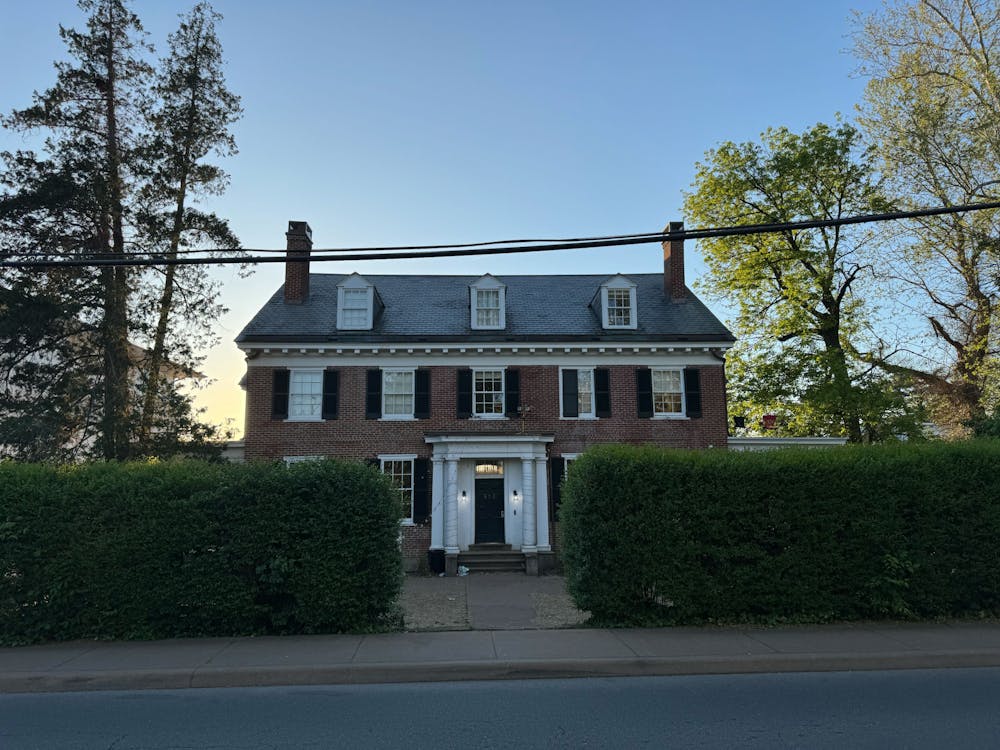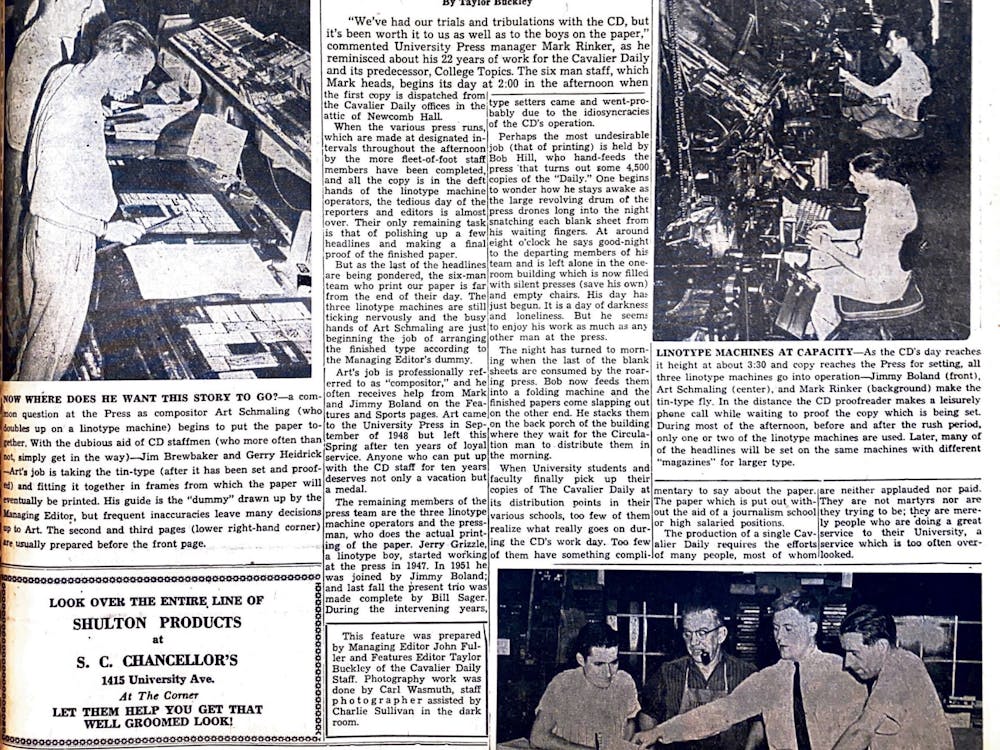In an open Honor trial July 20, rising third-year Architecture student Emily Bauer was acquitted of charges of cheating and lying during her fall 2007 "Introduction To Design" ARCH 201 course.
The class, taught by Prof. Anselmo Canfora, included lecture and studio components. In Bauer's studio class, which was instructed by lecturer Jeana Ripple, students were given a deadline of 6 p.m. Dec. 6, 2007 to finish their final studio projects. Bauer was accused of continuing to work on her final studio project after the 6 p.m. deadline. She was also accused of lying about the alleged violation to fellow students.
Former Architecture Council President Heather Fischer and 2008 Architecture graduate Jennifer Siomacco, who were witnesses for the community, said during the trial that they were also working in the Architecture School for a different class on the night of Dec. 6. Both Fischer and Siomacco separately approached Bauer and asked why she was still in the studio, as it was after her final project deadline had passed.
Though neither witness actually saw Bauer working on her final project, they said during the trial that they had suspicions that she might have been working on it.
"It appeared that [Bauer] was measuring something," Fischer said during the trial, adding that Bauer "didn't definitively say she didn't work on her model past deadline" when Fischer approached her on the night of Dec. 6.
Suspecting that Bauer may have committed an honor code violation, Fischer and Siomacco informed Ripple of their suspicions. Fischer then reported the case to the Honor Committee.
In her witness testimony for the community during the trial, Ripple said she did not actually see Bauer that night and noted she was only aware of a possible honor violation based on the suspicions of Fischer and Siomacco.
"I had no knowledge that she was working after 6:00 on December 6th," Ripple said during the trial, adding that she couldn't confirm whether Bauer's site model, the model in question, was finished by the deadline.
In her testimony as a primary witness for the accused, Bauer said she had accompanied fellow ARCH 201 student Lauren Rybinski back to the Architecture School that night because she was worried about Rybinski's health and did not want to leave Rybinski alone while she finished pinning up her final project for presentation. Bauer said she thought she would start working on a model that would be used for her non-graded personal portfolio while she waited for Rybinski and said she was not working on her final project.
Fischer questioned Bauer's statements, saying during the trial that "the days before [the final review in ARCH 201 are] extremely taxing. It's unusual to keep working [because] all you can think about is getting sleep and eating."
Rybinski, who was a witness for the accused, said during the trial that she had cut off part of her finger the previous day and Bauer had tried to convince her to seek medical attention. She also said she was sure Bauer had been working on her portfolio that night when Bauer accompanied her to the studio.
"She was very clear that she was working on stuff for [her] portfolio, not the project [due] the next day," Rybinski said.
Following testimonies from both the community and the accused and closing remarks from each side, the jury went into final deliberation at about 3 p.m. Sunday afternoon, about five hours after the start of the trial.
At 4:43 p.m., trial chair Charles Fellers announced that Bauer was found not guilty and that the case was closed. The case was decided by an 11-person jury --originally composed of 12 jurors before one left mid-way through the proceedings -- that included graduate and undergraduate students from the College, the Education School, the Architecture School, and the Graduate School of Arts & Sciences.
To convict a student of an honor offense, four-fifths of the jury must find that the act in question was committed "beyond a reasonable doubt" and that the accused student acted with dishonorable intent, meaning he or she should have known the act violated the honor code. If a student is found guilty of both act and intent, the jury then votes to determine whether the offense was serious. Only a simple majority is needed to find the act serious, or "non-trivial."
An honor offense is serious "if open toleration of the act in question would result in the dissolution of the community of trust," vice chair for trials Sophie Staples said. Following the trial, Bauer told The Cavalier Daily she was pleased with the jury's decision.
"I'm very glad and I think it's been coming for a long time," Bauer said in an interview regarding the not guilty verdict. "I thought it should have been dismissed at I-Panel."
The I-Panel, or Investigative Panel, is composed of three Committee members who decide whether to formally accuse the student in question of committing an honor offense after looking over the investigation findings.
Bauer said she chose to hold an open trial, the first in nearly three years, because she did not "think she did anything wrong" and because she wanted to be able to talk openly about her case in the future, which a closed Honor case would not have permitted.
In an interview, Bauer said she believes the honor code for the Architecture School needs to be more standardized and publicized for students, as the Architecture School has honor regulations separate from those of the entire University community and are, according to Bauer, not well publicized for Architecture students.
In the future, Bauer plans to talk to the Design Council, a student governing board at the Architecture School, and to Architecture faculty about her ideas to better publicize the Architecture School honor code for students. "I'm working to enforce standardization among studios," Bauer said in an interview.
Though Bauer wants to see changes to the way in which the Architecture School publicizes its honor regulations, she said she believes the overall concept of the University's honor system is positive.
"On the whole, I think the Honor system is a good idea," Bauer said in an interview.




